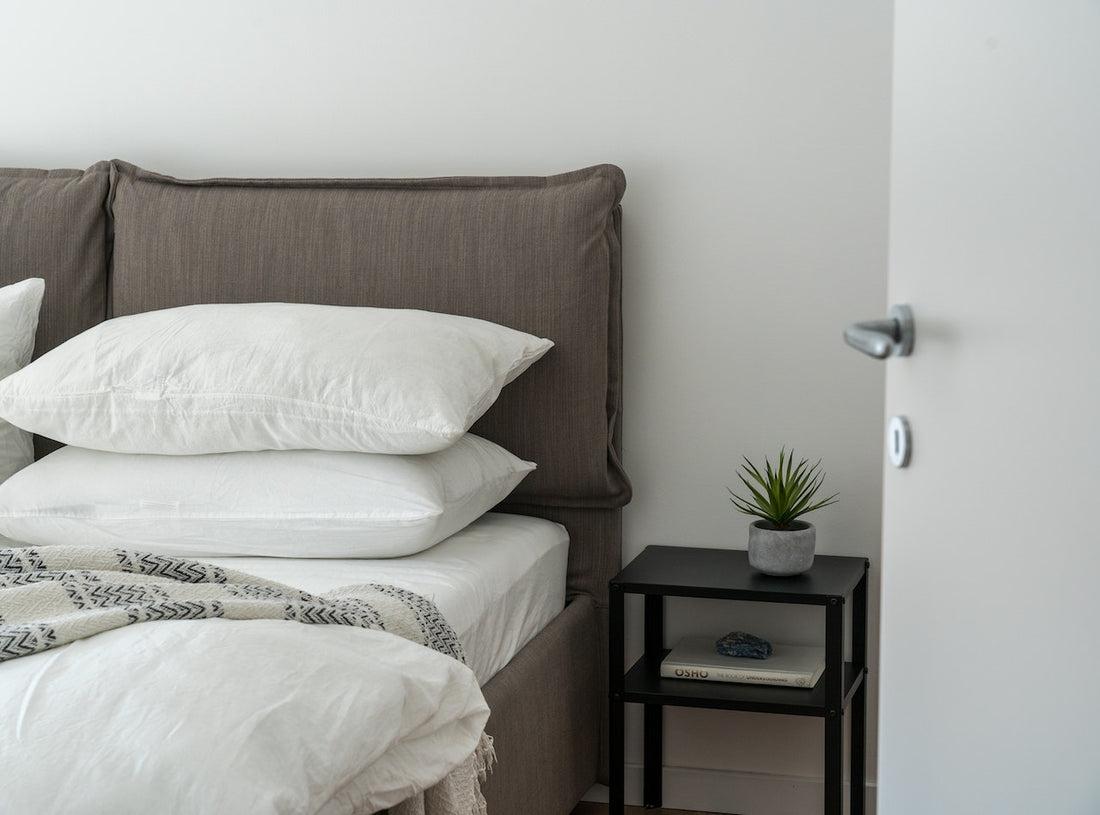As we age, our bodies go through numerous changes, and one aspect of our health that can be affected is our sleep patterns. Many older adults find it increasingly challenging to get a good night's sleep, which can lead to a variety of health issues and a reduced quality of life.
However, with the right strategies and lifestyle adjustments, it's possible to maintain healthy sleep patterns as you get older.
In this blog post, we will explore the reasons behind age-related sleep changes and provide practical tips to help you improve your sleep quality and overall well-being.
Understanding Age-Related Sleep Changes
Before diving into how to maintain healthy sleep patterns as you age, it's essential to understand the natural sleep changes that occur with age.
Some common sleep-related changes include:
- Reduced Sleep Duration: Older adults often experience shorter sleep durations compared to when they were younger. It's not uncommon for older individuals to sleep 6-7 hours a night, as opposed to the recommended 7-9 hours for adults.
- Changes in Sleep Architecture: As we age, our sleep cycles change. Older adults tend to have more fragmented sleep, with increased awakenings during the night. They may also experience a decrease in deep, restorative sleep (slow-wave sleep) and rapid eye movement (REM) sleep.
- Shift in Circadian Rhythms: Circadian rhythms, our body's internal clock, can shift as we age, causing older adults to become more inclined to go to bed and wake up earlier than they used to.
- Increased Sleep Disorders: Conditions such as sleep apnea, restless leg syndrome, and insomnia become more prevalent with age, further disrupting sleep quality.
- Medication Side Effects: Older adults often take medications that can affect their sleep patterns, such as certain antidepressants, pain relievers, or diuretics.
Now that we have a better understanding of the sleep changes associated with aging, let's explore strategies to maintain healthy sleep patterns.
Establish a Consistent Sleep Schedule
Maintaining a regular sleep schedule is crucial for healthy sleep patterns. Try to go to bed and wake up at the same times every day, even on weekends. This helps regulate your body's internal clock and improve the quality of your sleep.
Create a Comfortable Sleep Environment
Ensure that your bedroom is conducive to sleep. This means keeping the room dark, quiet, and at a comfortable temperature. Invest in a comfortable mattress and pillows to promote better sleep posture.
Stay Active During the Day
Regular physical activity can help you fall asleep faster and enjoy deeper sleep. Aim for at least 30 minutes of moderate exercise most days of the week. However, avoid strenuous exercise close to bedtime, as it can be stimulating.
Be Mindful of Your Diet
Watch your food and drink intake, especially in the hours leading up to bedtime. Avoid caffeine and nicotine, as they are stimulants that can disrupt sleep. Also, limit alcohol consumption, as it can lead to fragmented sleep.
Manage Stress and Anxiety
Stress and anxiety are common sleep disruptors, and they tend to increase as we age. Practice relaxation techniques such as deep breathing, meditation, or yoga to manage stress levels and promote better sleep.
Limit Naps
While short power naps can be refreshing, long or late-day naps can interfere with nighttime sleep. If you need to nap, keep it brief (20-30 minutes) and earlier in the day.
Address Sleep Disorders
If you suspect you have a sleep disorder like sleep apnea or restless leg syndrome, consult a healthcare professional for evaluation and treatment options. Treating these conditions can significantly improve sleep quality.
Review Medications
If you're taking medications that affect your sleep, discuss alternatives or adjustments with your healthcare provider. They may be able to prescribe medications with fewer sleep-related side effects.
Stay Socially Engaged
Maintaining an active social life and staying connected with friends and loved ones can help combat feelings of loneliness and depression, which can impact sleep.
Seek Professional Help
If you've tried various strategies and continue to experience sleep disturbances, consider consulting a sleep specialist. They can provide a thorough evaluation and recommend specialized treatments or therapies.
Conclusion
Aging doesn't have to mean sacrificing your sleep quality. By understanding the natural sleep changes that come with age and implementing healthy sleep habits, you can enjoy restorative and rejuvenating sleep throughout your life.
Remember that it may take time to see improvements in your sleep patterns, so be patient and persistent in your efforts to maintain healthy sleep as you get older. Prioritizing good sleep can have a profound impact on your overall health and well-being, making it an essential aspect of healthy aging.



